Isoflavone
How to submit an article:
- Registered users can submit any published journal article that has a unique DOI (Digital Object Identifier) name or link to Research Hub.
- For example, you can paste the full DOI link:
https://doi.org/10.1109/5.771073or just the DOI name:10.1109/5.771073into the field above and click submit. - The person who is first to submit a valid article to Research Hub will forever be credited for it, and every article submission earns you +6 Research Points.
Published research studies are articles that present the findings of original research that has undergone a peer-review process and has been made publicly available in scholarly journals, books or other media.
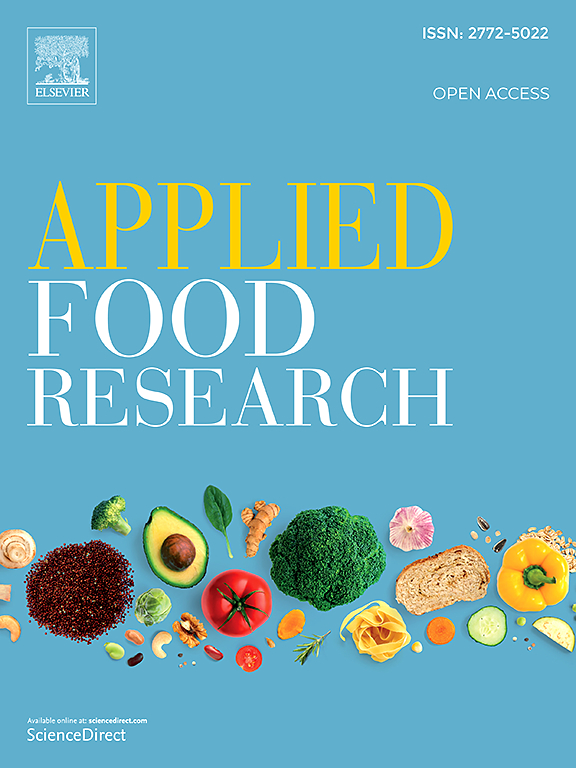
Estrogenic activity of fermented soymilk extracts and soy compounds
2023 Dec Applied Food Research Nishi K, Imamura I, Takemoto T, Iga K, Kiyama R
The study demonstrates the estrogenic activity of soymilk extracts and soy compounds, with greater activity observed after fermentation, highlighting complex mechanisms at the transcription level. RNA-sequencing analysis revealed up-regulation of genes related to cell division/cell cycle and DNA replication/DNA repair and down-regulation of genes associated with autophagy, suggesting enhanced cell proliferation. The estrogenic activity of soymilk extracts and soy flavonoids, especially after fermentation, offers potential pharmacological benefits, including bone protection, cancer chemoprevention, neuroprotection, and the treatment of menopausal syndromes.
Experimental Study Menopause Soy Milk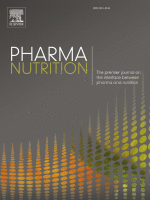
Soy protein, bioactive peptides, and isoflavones: A review of their safety and health benefits
2023 Sep PharmaNutrition Tan ST, Tan SS, Tan CX
Review Article Type 2 Diabetes Soybean Osteoporosis Isoflavone Cholesterol High Blood PressureSoy protein, bioactive peptides, and isoflavones are generally safe for consumption and may help reduce the risk of several significant health conditions.
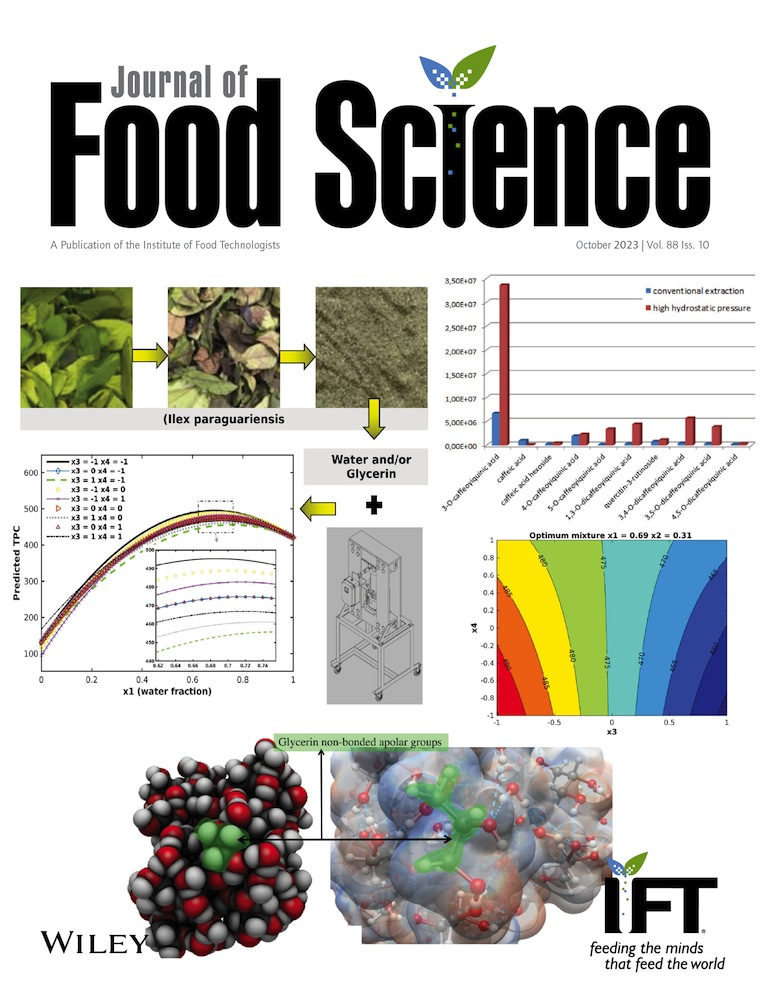
Evaluating estrogenic activity of isoflavones inmisousing yeast two‐hybrid method
2023 Jun 06 Journal of Food Science Higa Y, Nagano R, Kanauchi M
Genistein in miso samples, particularly in Mame miso, showed high estrogenic activity against Y187-ββ modeling hERββ. Isoflavones in miso inhibited the estrogenic activity of 17β-estradiol against Y187-αα but activated the activity against Y187-αβ and Y187-ββ, modeling hER-αβ and hER-ββ. Genistein was identified as an antagonist of estrogenic activity against hERαα but an agonist against hERαβ and hERββ.
Experimental Study Miso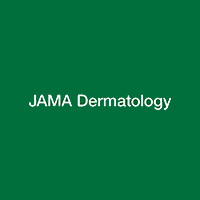
Evaluation of the Safety and Effectiveness of Nutritional Supplements for Treating Hair Loss
2023 Jan 01 JAMA Dermatology Drake L, Reyes-Hadsall S, Martinez J, Heinrich C, Huang K, Mostaghimi A
Dietary and nutritional interventions, including Viviscal, Nourkrin, Nutrafol, Lamdapil, Pantogar, capsaicin and isoflavone, omegas 3 and 6 with antioxidants, apple nutraceutical, total glucosides of paeony and compound glycyrrhizin tablets, zinc, tocotrienol, pumpkin seed oil, Kimchi and cheonggukjang, vitamin D3, and Forti5, showed varying levels of evidence for potential benefits in improving disease course, with rare and mild adverse effects.
Systematic Review Randomised Controlled Trial Hair Loss Pumpkin Seed Oil
Black soybean (Glycine max(L.) Merr.): paving the way toward new nutraceutical
2022 Feb 10 Critical Reviews in Food Science and Nutrition Kumar M, Suhag R, Hasan M, Dhumal S, Radha , Pandiselvam R, et al.
Review Article Black SoybeanModern extraction techniques improve the extraction of bioactive compounds from black soybeans, which have potential use in functional foods and nutraceutical components.
Research insights are moderated by the Research Hub team and offer an at-a-glance overview of interesting research findings.

2023 PharmaNutrition
Soy protein, bioactive peptides, and isoflavones are generally safe for consumption and may help reduce the risk of several significant health conditions.
Review Article Cholesterol High Blood Pressure Osteoporosis Soybean Type 2 Diabetes
Soy protein, bioactive peptides, and isoflavones: A review of their safety and health benefits
Tan ST, Tan SS, Tan CX

2022 Critical Reviews in Food Science and Nutrition
Modern extraction techniques improve the extraction of bioactive compounds from black soybeans, which have potential use in functional foods and nutraceutical components.
Review Article Black Soybean
Black soybean (Glycine max(L.) Merr.): paving the way toward new nutraceutical
Kumar M, Suhag R, Hasan M, Dhumal S, Radha , Pandiselvam R, et al.

2022 Nutrients
Equol, a powerful estrogen-like compound derived from soy, could be key to better health in postmenopausal women if gut microbiome could be altered to facilitate its production.
Review Article Equol Gut Microbiota Oestrogen Soybean
Maximizing the Estrogenic Potential of Soy Isoflavones through the Gut Microbiome: Implication for Cardiometabolic Health in Postmenopausal Women
Leonard LM, Choi MS, Cross TWL
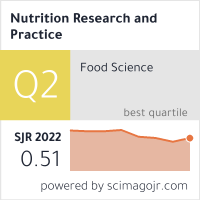
2022 Nutrition Research and Practice
Isoflavone supplementation noticeably impacts menopausal symptoms and hormonal changes in postmenopausal women.
Meta-Analysis Menopause Soybean
Effect of isoflavone supplementation on menopausal symptoms: a systematic review and meta-analysis of randomized controlled trials
Kang I, Rim CH, Yang HS, Choe JS, Kim JY, Lee M
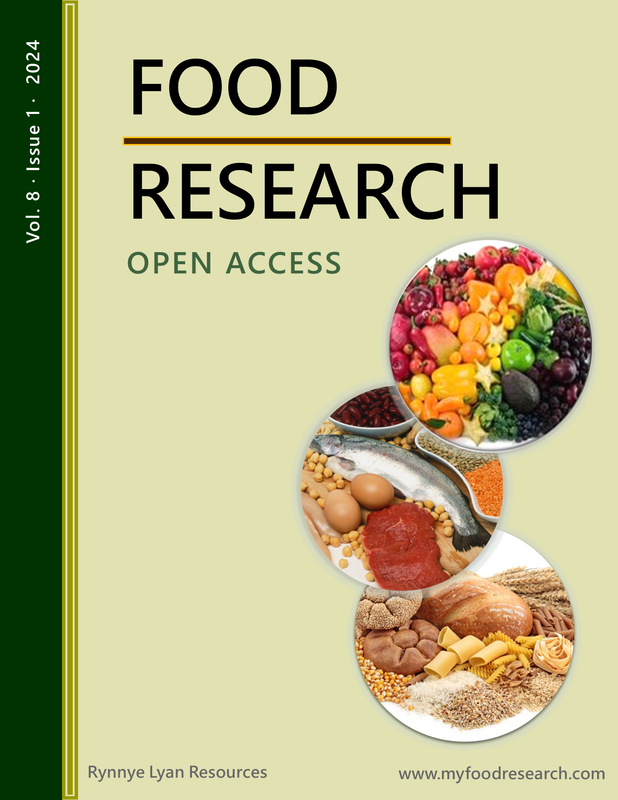
2021 Food Research
Natto and Miso, Japanese fermented soy foods, contain health-promoting bioactive components, including nattokinase, bacillopeptidase F, vitamin K2, dipicolinic acid, γ-polyglutamic acid, isoflavones, and phenolic acids.
Review Article Miso Natto Vitamin K2
Natto and miso: an overview on their preparation, bioactive components and
health-promoting effects
Chan EWC, Wong SK, Kezuka M, Oshiro N, Chan HT
Review Articles
Review articles summarise and critically evaluate the current state of research on a specific topic or field by synthesising multiple primary research studies.

Soy protein, bioactive peptides, and isoflavones: A review of their safety and health benefits
2023 Sep PharmaNutrition Tan ST, Tan SS, Tan CX
Review Article Type 2 Diabetes Soybean Osteoporosis Isoflavone Cholesterol High Blood PressureSoy protein, bioactive peptides, and isoflavones are generally safe for consumption and may help reduce the risk of several significant health conditions.

Evaluation of the Safety and Effectiveness of Nutritional Supplements for Treating Hair Loss
2023 Jan 01 JAMA Dermatology Drake L, Reyes-Hadsall S, Martinez J, Heinrich C, Huang K, Mostaghimi A
Dietary and nutritional interventions, including Viviscal, Nourkrin, Nutrafol, Lamdapil, Pantogar, capsaicin and isoflavone, omegas 3 and 6 with antioxidants, apple nutraceutical, total glucosides of paeony and compound glycyrrhizin tablets, zinc, tocotrienol, pumpkin seed oil, Kimchi and cheonggukjang, vitamin D3, and Forti5, showed varying levels of evidence for potential benefits in improving disease course, with rare and mild adverse effects.
Systematic Review Randomised Controlled Trial Hair Loss Pumpkin Seed Oil
Black soybean (Glycine max(L.) Merr.): paving the way toward new nutraceutical
2022 Feb 10 Critical Reviews in Food Science and Nutrition Kumar M, Suhag R, Hasan M, Dhumal S, Radha , Pandiselvam R, et al.
Review Article Black SoybeanModern extraction techniques improve the extraction of bioactive compounds from black soybeans, which have potential use in functional foods and nutraceutical components.

Effect of isoflavone supplementation on menopausal symptoms: a systematic review and meta-analysis of randomized controlled trials
2022 Jan Nutrition Research and Practice Kang I, Rim CH, Yang HS, Choe JS, Kim JY, Lee M
Meta-Analysis Systematic Review Soybean Isoflavone MenopauseIsoflavone supplementation noticeably impacts menopausal symptoms and hormonal changes in postmenopausal women.

Maximizing the Estrogenic Potential of Soy Isoflavones through the Gut Microbiome: Implication for Cardiometabolic Health in Postmenopausal Women
2022 Jan 27 Nutrients Leonard LM, Choi MS, Cross TWL
Review Article Equol Oestrogen Gut Microbiota Soybean IsoflavoneEquol, a powerful estrogen-like compound derived from soy, could be key to better health in postmenopausal women if gut microbiome could be altered to facilitate its production.
Clinical Trials
Clinical trials are research studies that involve people and are conducted to evaluate the safety and efficacy of new treatments or interventions, such as drugs, medical devices, or behavioural therapies.
Study Protocols
Published study protocols are detailed plans that outline the objectives, methodology, statistical analyses, and organisation of a research study that have been made publicly available for others to review and use as a reference.
Presentation Slides

Review Article
Soy protein, bioactive peptides, and isoflavones are generally safe for consumption and may help reduce the risk of several significant health conditions.
Tan ST, Tan SS, Tan CX

Review Article
Modern extraction techniques improve the extraction of bioactive compounds from black soybeans, which have potential use in functional foods and nutraceutical components.
Kumar M, Suhag R, Hasan M, Dhumal S, Radha , Pandiselvam R, Senapathy M, Sampathrajan V, Punia S, Sayed AAS, Singh S, Kennedy JF

Review Article
Equol, a powerful estrogen-like compound derived from soy, could be key to better health in postmenopausal women if gut microbiome could be altered to facilitate its production.
Leonard LM, Choi MS, Cross TWL

Meta-Analysis
Isoflavone supplementation noticeably impacts menopausal symptoms and hormonal changes in postmenopausal women.
Kang I, Rim CH, Yang HS, Choe JS, Kim JY, Lee M

Review Article
Natto and Miso, Japanese fermented soy foods, contain health-promoting bioactive components, including nattokinase, bacillopeptidase F, vitamin K2, dipicolinic acid, γ-polyglutamic acid, isoflavones, and phenolic acids.
Chan EWC, Wong SK, Kezuka M, Oshiro N, Chan HT
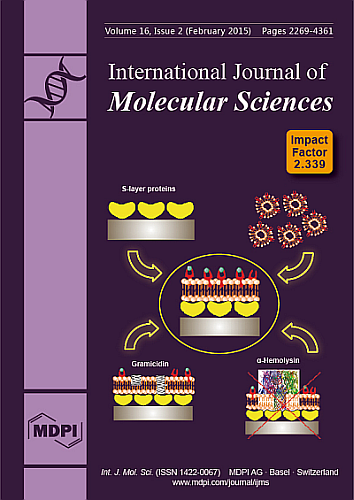
Systematic Review
Isoflavones found in soybeans can reduce risks of certain cancers and alleviate menopause-related symptoms among women, such as vasomotor syndromes, spinal bone loss, and hypertension.
Chen LR, Chen KH

Review Article
Isoflavones, mainly found in soy-derived products, show beneficial effects on bone health, potential cancer risk reduction, and alleviation of menopausal symptoms, but not on cardiovascular risk.
Gómez-Zorita S, González-Arceo M, Fernández-Quintela A, Eseberri I, Trepiana J, Portillo MP
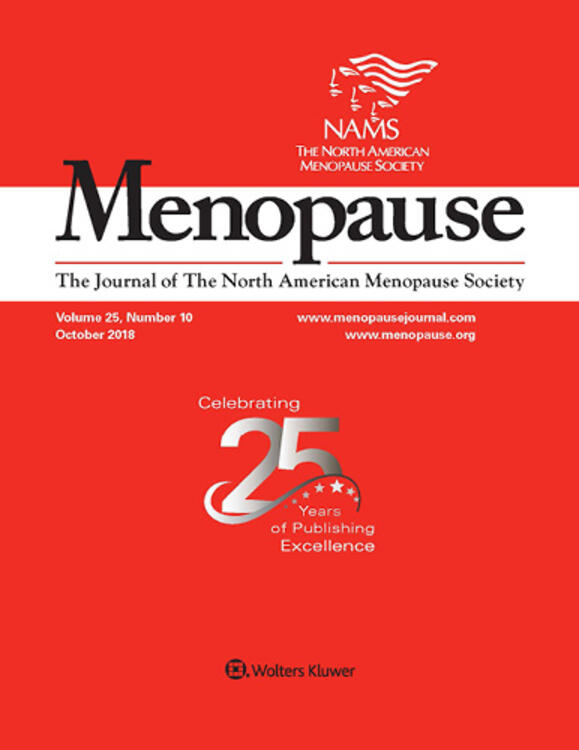
Systematic Review
Soybean isoflavones, whether extracted or synthesized, prove significantly effective in reducing the frequency and severity of hot flashes in perimenopausal and postmenopausal women.
Taku K, Melby MK, Kronenberg F, Kurzer MS, Messina M
Executive Summary
Write an executive summary in the form of a blog article on the topic of "Research into Chinese medicine treatment for Isoflavone" summarising the research below and using language that can be easily understood by patients and avoiding medical jargon using a professional and caring tone of voice.
Write an executive summary in the form of a blog article on the topic of "Researched Chinese medicine treatments for Isoflavone" summarising the research below in an objective and easy to understand way, and using language that can be easily understood by patients. Group the article into Chinese medicine treatments first, followed by nutrition and other treatments. Avoid using medical jargon and use a professional and caring tone of voice.
Write me a concise but easy to understand executive summary on the topic of "Chinese medicine treatments for Isoflavone" based on the following research that I will give you. Your summary should be 2 paragraphs long in Australian English spelling and include references to the studies.
A Review Article published in 2023 in the journal PharmaNutrition found that Soy protein, bioactive peptides, and isoflavones are generally safe for consumption and may help reduce the risk of several significant health conditions. Methodology: This review followed the Preferred Reporting Items for Systematic reviews and Meta-Analyses guidelines. It began with a sophisticated multi-database search, featuring resources like Google Scholar, Scopus, and others. This search targeted articles published from 2017 to March 2023 and used specific keywords for accuracy. Forty-three articles were handpicked from this process after excluding reviews, conference reports, duplicates, inaccessible texts, and any non-English publications. Discussion of Results: A thorough examination of the chosen articles resulted in the conclusion that soy proteins, soy bioactive peptides, and soy isoflavones are typically safe for human consumption. Furthermore, it was found that the consumption of these compounds may have beneficial effects, potentially lowering risk factors for ailments such as osteoporosis, various cancers, hypertension, atherosclerosis, and more.
A Review Article published in 2022 in the journal Critical Reviews in Food Science and Nutrition found that Modern extraction techniques improve the extraction of bioactive compounds from black soybeans, which have potential use in functional foods and nutraceutical components. These modern extraction techniques involve the application of technologies such as microwaves, ultrasounds, and enzymes. Contrary to traditional methods that depend on simple yet toxic solvents, these contemporary options yield higher amounts of bioactive substances from black soybeans, are quicker, and are less damaging to the environment. The exact bioactive compounds extracted include anthocyanins, phenolic acids, isoflavones, and flavones, among others. Researchers discovered that black soybeans, and specifically their seed coat, are rich in various bioactive compounds. These compounds have been reported to possess numerous health benefits, showing antioxidant, anti-cancer, anti-diabetic, anti-obesity, anti-inflammatory, cardio and neuroprotective activities. The study also explores how these soybean extracts have been used in the manufacture of food products like noodles, in the development of biodegradable films with pH sensitivity, and in therapeutic applications such as promoting wound healing and alleviating inflammation. The comprehensive review, therefore, serves as a handy reference for food manufacturers and scientists, showcasing the vast potential of black soybeans in the development of functional foods and nutraceuticals.
A Review Article published in 2022 in the journal Nutrients found that Equol, a powerful estrogen-like compound derived from soy, could be key to better health in postmenopausal women if gut microbiome could be altered to facilitate its production. The methodology of this research involved looking closely at the properties and actions of equol, a metabolite of the soy isoflavone daidzein. This substance is produced through the process of intestinal bacterial metabolism, but the ability to produce it is not present in over half of the human population due to the absence of specific equol-producing bacteria in the gastrointestinal tract. Given that the make up of the gut microbiome varies from person to person, understanding the effects of equol and daidzein in the human body has been a complex task. Furthermore, the fact that rodents easily produce equol complicates the matter, as findings from rodent models may not directly apply to humans. While interpreting the results, it was found that equol, due to its strong estrogenic activity, could potentially be an excellent means to manage postmenopausal symptoms and overall health. However, the ability to produce equol varies significantly among people, based on the bacterial microflora of their gut. Therefore, the benefits of equol could potentially be amplified by finding effective methods to manipulate the gut microbiome to foster equol production, a strategy that could lead to improved health outcomes for postmenopausal women.
A Meta-Analysis published in 2022 in the journal Nutrition Research and Practice found that Isoflavone supplementation noticeably impacts menopausal symptoms and hormonal changes in postmenopausal women. In order to examine isoflavones effects on menopausal symptoms and the associated hormonal alterations, a systematic review and meta-analysis were conducted. To do this, the PubMed and EMBASE databases were used, but the selected studies were restricted to random controlled trials (RCTs) assessing isoflavone supplementation's impact on menopausal symptoms. Overall, 11 studies were chosen for the final quantitative evaluation, and the isoflavone intervention amount varied among these studies. The Meta-analysis displayed that supplementing isoflavones meaningfully increased estradiol levels and the Kupperman index (a composite scoring of multiple menopausal symptoms intensity). Yet, there were no significant impacts observed on hot flashes, or the release of two specific hormones: follicle-stimulating hormone and luteinizing hormone. It should be noted that there was a significant inconsistency in estradiol levels and Kupperman index findings among different studies.
A Review Article published in 2021 in the journal Food Research found that Natto and Miso, Japanese fermented soy foods, contain health-promoting bioactive components, including nattokinase, bacillopeptidase F, vitamin K2, dipicolinic acid, γ-polyglutamic acid, isoflavones, and phenolic acids. The process of preparing natto involves fermenting cooked soybeans with Bacillus subtilis natto. This gives the soybeans a sticky appearance, a slippery texture, a sour aroma and a nutty flavour, and results in the production of bioactive components such as nattokinase, bacillopeptidase F, vitamin K2, dipicolinic acid, and γ-polyglutamic acid. Miso, on the other hand, refers to a paste produced by fermenting cooked soybeans with koji, which is steamed rice inoculated with Aspergillus oryzae. The health benefits of these bioactive components, produced during the fermentation process of both natto and miso, have been identified and accentuated. These components add value to traditional soy foods, boosting their potential in promoting health. The wealth of bioactive nutrients in these foods indicate the reiterate the importance of traditional fermented foods in dietary practices.
A Systematic Review published in 2021 in the journal International Journal of Molecular Sciences found that Isoflavones found in soybeans can reduce risks of certain cancers and alleviate menopause-related symptoms among women, such as vasomotor syndromes, spinal bone loss, and hypertension. The study overviewed soybeans' chemical composition and focused mainly on isoflavones. The research examined the processes of soybean preparation that includes cleaning, drying, crushing, and dehulling, and extraction methods to derive various soy products, particularly focusing on isoflavones - daidzein, genistein, and S-equol. Various soy products such as refined soy oil, soy lecithin, free fatty acids, glycerol, and soybean meal were discussed, along with the presence of the minor biological constituents in remaining components. The study explored the relationship between isoflavone consumption and disease prevention, particularly in relation to heart disease, cancer incidence—of the breast, bladder, and endometrial and colorectal—and menopause-related symptoms. The therapeutic effects of isoflavones were studied in the context of vasomotor syndromes, spinal bone loss, hypertension regulation, depressive symptoms during pregnancy, and in vitro glycemic control. In contrast, it failed to find definitive effects of isoflavones on cognition improvement and urogenital symptoms. The inconsistencies in defining the ingredients, doses, study durations, and outcomes of isoflavone studies proved challenging for the research.
A Review Article published in 2020 in the journal Nutrients found that Isoflavones, mainly found in soy-derived products, show beneficial effects on bone health, potential cancer risk reduction, and alleviation of menopausal symptoms, but not on cardiovascular risk. The study examined the potential uses of isoflavones, phenolic compounds mostly found in soy-derived foods and several vegetables. Isoflavones are seen as potential alternative therapies for hormone-dependent disorders due to their near-identical chemical structure to estradiol. These disorders include certain cancers, cardiovascular diseases, and menopausal symptoms. The investigation involved reviewing existing scientific evidence to evaluate the potential effects of isoflavones on these diseases and health concerns. In assessing the results, the review found evidence suggesting that isoflavones could have a beneficial effect on postmenopausal women's bone health, contributing to osteoporosis prevention and treatment. However, observed study results were not entirely conclusive due to discrepancies among study designs. Contrarily, there appeared to be no significant protective effect against cardiovascular risk with soy isoflavones. In terms of cancer, preliminary observations suggested that isoflavones may reduce some types of cancer risks, such as breast and endometrial cancer. Lastly, isoflavones showed a potential role in reducing hot flushes associated with menopause. Concerning safety, most common adverse effects were mild and observed at the gastrointestinal level.
A Systematic Review published in 2012 in the journal Menopause found that Soybean isoflavones, whether extracted or synthesized, prove significantly effective in reducing the frequency and severity of hot flashes in perimenopausal and postmenopausal women. The examination in this study began with a database search on PubMed and The Cochrane Controlled Clinical Trials Register for articles shedding light on double-blinded randomized controlled trials conducted until December 14, 2010. Additionally, the authors kept a keen eye out for other peer-reviewed articles containing potentially useful information. Any articles discovered were scrutinized for information on the effects of isoflavones on the frequency or severity of hot flashes in comparison to a placebo. 19 trials were found suitable for inclusion in a systematic review, while 17 of these made it to the meta-analysis stage. Among the 19 trials under review, data revealed that soybean isoflavones' ingestion, on a median of 54 mg for 6 weeks to 12 months, seemed to lead to a decrease in the frequency of hot flashes. A similar trend was discerned with hot flash severity, which reportedly reduced with isoflavone intake. Interestingly, it was found that isoflavone supplements with over 18.8 mg of genistein were more than twice as powerful in reducing hot flash frequency as supplements with a lower genistein count. These results, compiled over the course of the study, strongly suggest that soy isoflavone supplements are quite effective in mitigating the issue of hot flashes in perimenopausal and postmenopausal women.
Moderation Tools
Topic
Sign In
Users not signed in are limited to viewing the 5 most recent items of content.
The ability to produce it is not present in over half of the human population due to the absence of specific equol-producing bacteria in the gastrointestinal tract. —Jinnan C 22 Jan 2024